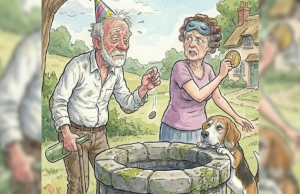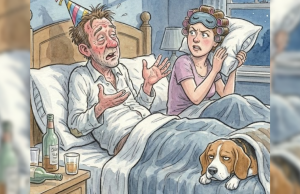If your man sweats a lot at night, this is the reason why

For many people, night sweats are an uncomfortable part of existence. Although sweating is a natural element of the body’s temperature control mechanism, night sweats are not triggered by external variables such as the temperature of your room or the type of bedding you wear. Excessive night sweats, on the other hand, are caused by physiological processes or underlying health problems. Night sweats can be mild or severe, but are often characterized as soaking through the sheets.
Low testosterone levels have been identified as a possible cause of night sweats in men, so hormones may play a role. Men are sometimes more likely to have other conditions that produce night sweats, as their gender influences other elements of their health, including how they sleep.
Our bodies want to maintain a constant temperature, which is known as the thermoneutral zone. Lower temperatures cause us to shiver and raise our internal temperature, while higher temperatures cause us to sweat to cool down. Men often have a lower heat tolerance than women, but their gender is only one factor in determining their thermoneutral zone.
Many environmental and physiological factors can produce night sweats by altering the thermoneutral zone, either by narrowing the allowable temperature range or temporarily increasing it, resulting in shivering and chills followed by sweating when the thermoneutral zone returns to normal. Some of these triggers are harmless or even linked to healthy lifestyle changes, while others are linked to medical issues that may require treatment.
If you have concerns about night sweats, your greatest resource is your doctor. They can identify any underlying medical concerns and offer advice on how to manage your symptoms.
1. Low testosterone levels
Low testosterone levels, commonly known as male hypogonadism, can cause night sweats in men. Low testosterone levels affect approximately 38% of men age 45 and older for a variety of causes, and even healthy men age 60 and older have a 20% chance of having low testosterone levels. Male hypogonadism has several causes, but the most common are primary hypogonadism (a problem with the testes) and secondary hypogonadism (a problem with the region of the brain that controls hormone production).
2. Anxiety and stress
Anxiety causes the sweat glands to become more reactive, and people who are stressed or anxious are more likely to experience night sweats. Both short-term and long-term anxiety have these effects, with some study suggesting that even the stress of trying to answer a math problem can affect the reactivity of sweat glands.
Men are also much less likely to report or seek mental health care, despite the fact that women are almost twice as likely to be diagnosed with anxiety disorders. Men and women have different symptoms of stress, with women having more emotional responses such as melancholy and men having more physical symptoms such as diastolic blood pressure variations. Male and female responses to stress, on the other hand, have more similarities than differences.
Source:za.opera.news

















